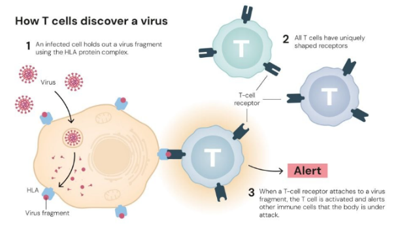Syllabus:
GS-3: Science and Technology- developments and their applications and effects in everyday life.
GS-3: Awareness in the fields of IT, Space, Computers, robotics, nano-technology, bio-technology and issues relating to intellectual property rights.
Context:
The 2025 Nobel Prize in Physiology or Medicine was awarded jointly to Mary E. Brunkow and Fred Ramsdell from the USA and Shimon Sakaguchi from Japan for their groundbreaking discoveries on peripheral immune tolerance.
Key Discoveries
The laureates identified the immune system’s security guards, regulatory T cells (Tregs), which prevent immune cells from attacking our own body.
Their discoveries have been decisive for our understanding of how the immune system functions and why we do not all develop serious autoimmune diseases.
Earlier, scientists believed that immune tolerance was primarily governed by the thymus, an organ where potentially self-attacking T cells are eliminated.

Shimon Sakaguchi first identified these Tregs in 1995, challenging the belief that immune tolerance was solely managed by elimination of harmful immune cells in the thymus.
Sakaguchi, Brunkow and Ramsdell were examining sick male mice, and through painstaking elimination and identification of genes.
- They had managed to find that the particular mutation making these mice sick was related to a rare autoimmune disease among humans, called IPEX.
- Both the diseases were caused by mutations in the FOXP3 gene.
Later, it was established that Foxp3 gene controls the development of regulatory T cells.
The research clarified that certain autoimmune diseases occur due to mutations in the Foxp3 gene.
The scientists showed how regulatory T cells maintain immune tolerance and prevent overreaction once an infection is cleared.
The discoveries have also led to the development of potential medical treatments that are now being evaluated in clinical trials.
Scientific Significance
- Cancer Tumours: Tumours use regulatory T cells to block immune attacks, helping cancer escape the body’s defenses. Targeting these cells can strengthen immunity to fight tumors.
- Autoimmune Diseases: Regulatory T cells stop the immune system from attacking the body. When they don’t work properly, autoimmune diseases occur; enhancing their function can control these harmful responses.
- Transplanted Organs: Regulatory T cells reduce immune rejection of transplanted organs by calming immune reactions, improving transplant success and lowering the need for strong immunosuppressive drugs.

